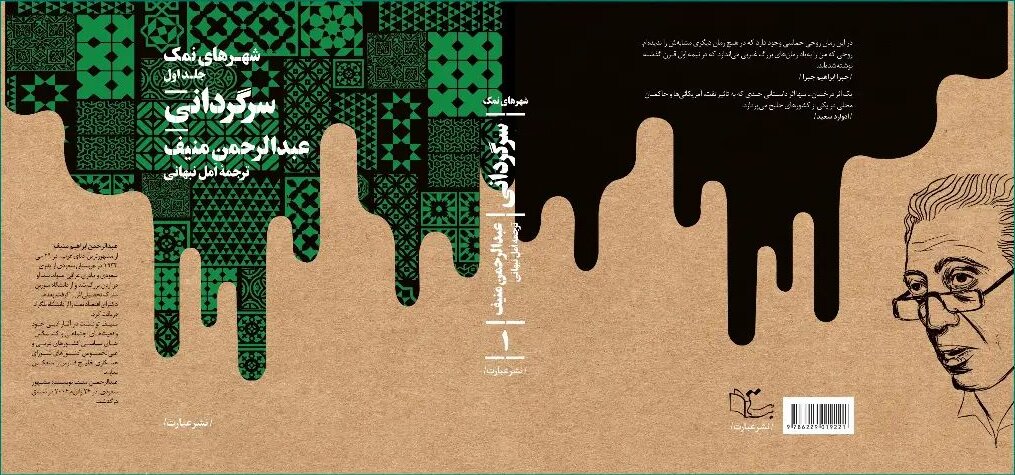Abdul Rahman Munif’s “Cities of Salt” published in Persian

TEHRAN-The first volume of the quintet “Cities of Salt” written by the Jordanian author Abdul Rahman Munif has been released in the Iranian book market.
Translated by Amal Nabhani, the book “The Labyrinth,” also known as “The Wilderness” has been published by Ebarat Publishing House in 708 pages, IRNA reported.
A petrofiction novel by Abdul Rahman Munif, it was first published in Beirut, Lebanon, in 1984 and was immediately recognized as a major work of Arab literature. The novel describes the far-reaching effects of the discovery of huge reserves of oil under a once-idyllic oasis somewhere on the Arabian Peninsula.
“Oil is our one and only chance to build a future,” Munif once said. “And the regimes are ruining it.” In the novel and its sequels, great oil-rich cities are soon built, described as cities of salt. Explaining the book's title, Munif said, “Cities of Salt means cities that offer no sustainable existence. When the waters come in, the first waves will dissolve the salt and reduce these great glass cities to dust. In antiquity, as you know, many cities simply disappeared. It is possible to foresee the downfall of cities that are inhuman. With no means of livelihood, they won't survive.”
Banned in Saudi Arabia, this is a blistering look at Arab and American hypocrisy following the discovery of oil in a poor oasis community.
The book narrates the discovery and exploitation of oil by an American company in an unnamed kingdom in the Arabian Peninsula in the 1930s, which results in the destruction of two traditional villages and the creation of a new coastal city fraught with economic, social, and political problems.
The novel records the shattering of people’s lives and the violation of their own traditions. Driven out of their simple homes and tents, the people watch their villages being leveled to the ground while American ports and cities are erected in their place. They are left feeling not only bewildered by modern technological novelties but also betrayed by their own greedy rulers, who give foreign corporations the green light to do whatever they want regardless of the country’s people and traditions.
“Cities of Salt” has been translated into several languages and is recommended reading for many university courses around the world; it is also banned in some Arab countries.
Abdul Rahman Munif (1933-2004) was a novelist, short story writer, memoirist, journalist, thinker, and cultural critic. He is considered one of the most significant authors in the Arabic language of the 20th century. His novels include strong political elements as well as mockeries of the Middle Eastern elite classes.
Born to Saudi parents in 1933 in Amman, Jordan, which at the time was under British rule, Munif was later stripped of his Saudi citizenship for his criticism of the royal family and its use of the country's oil reserves.
He earned a license in law from Baghdad and Cairo Universities, and a Ph.D. in oil economics from the University of Belgrade. He subsequently served as Director of Planning in the Syrian Oil Company and Director of Crude Oil Marketing. He was editor-in-chief of a monthly periodical, Oil & Development, in Baghdad. These early hands-on experiences with oil development in Arab countries provided Munif with invaluable insights into his writings.
SS/
Leave a Comment